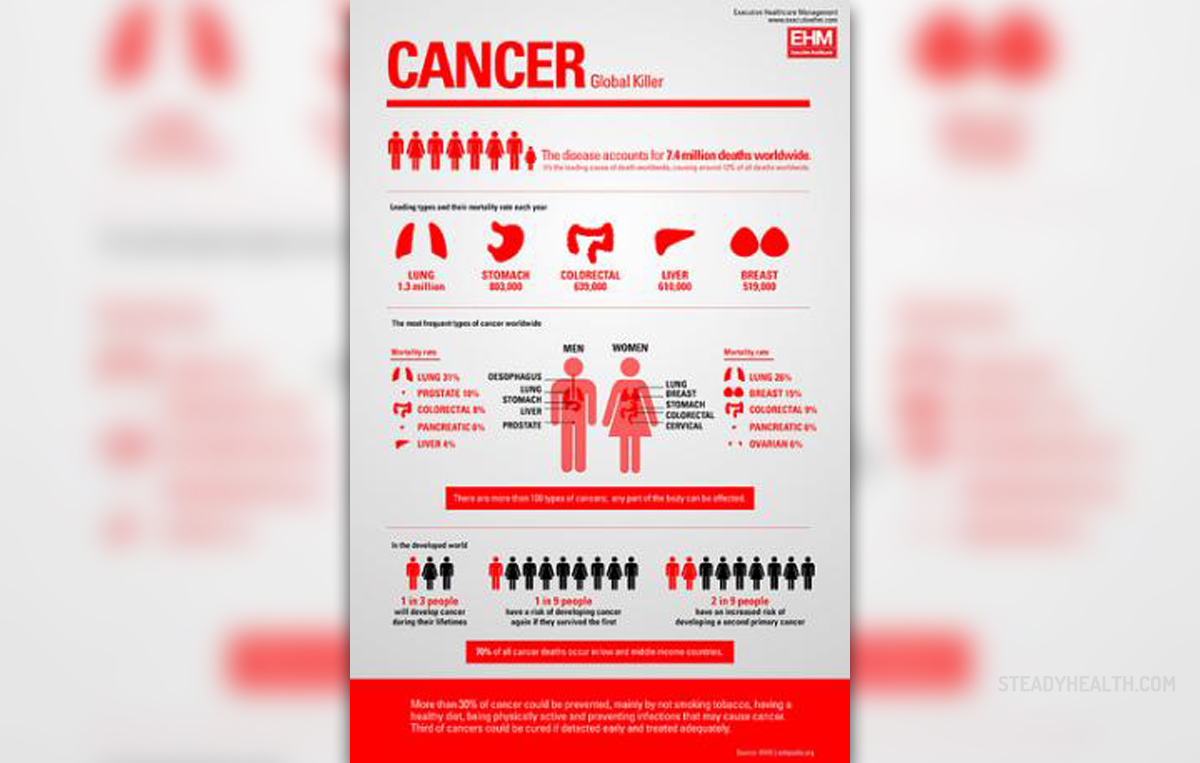
Esophageal cancer andthe classification
As its name suggests, esophageal cancer occurs in esophagus,a long tube through which the food goes from the throat to the stomach. Most frequently,it occurs in the lower part of this tube, though it can practically occur anywherealong it. The real cause of this malignant disease has not been determined sofar, but it is known that it is a result of certain cells’ DNA mutations, sinceit further leads to their enormous accumulation and formation of a tumor, whichcan grow or simply spread to other parts of the body. Depending on the type of the cells in which the cancerbegins, esophageal cancer can be divided into:
Adenocarcinoma, which is generally typical of the lower partof the esophagus and which begins in the cells of the glands that secretemucus,Squamos cell carcinoma, which typically occurs in the middlepart and begins in the cells near the surface of the esophagus,Lymphoma, melanoma, sarcoma, and small cell cancer are only someof other rare types of esophageal cancer.The scientists believe that irritations of the esophagus mayincrease the chances of this disease, and they can be caused by variousfactors, among which are also alcohol, obesity, smoking, diet that is low infruits and vegetables, and GERD. Men are a bit more prone to this disease, aswell as those who are older than 60 years, or who have it running in thefamily.
Symptoms ofesophageal cancer
When it comes to the symptoms of esophageal cancer, eventhough in the majority of the cases there are no symptoms or signs at earlystages, among the first that will appear is dysphagia, which is actually a medicalterm for difficulty swallowing. Painful swallowing may also be one of the firstsigns, particularly when a person tries to swallow hard food. The result ofthese problems is usually poor nutrition and the loss of weight, but when thedisease has progressed, signs that will certainly indicate it are nauseafollowed by vomiting that is sometimes even bloody, regurgitation or food, painin the chest, coughing, etc. Since the disease may spread to other parts of thebody, the symptoms that indicate jaundice, ascites, pleural effusion, and otherliver and lung conditions may occur.
None of these symptoms should be ignored, but the doctorshould be visited as soon as they are noticed, because the earlier the canceris diagnosed, the better the chances are for the successful treatment. Otherwise,the symptoms may only worsen or cause serious complications, which willdecrease the chances for the recovery.

















Your thoughts on this
Loading...